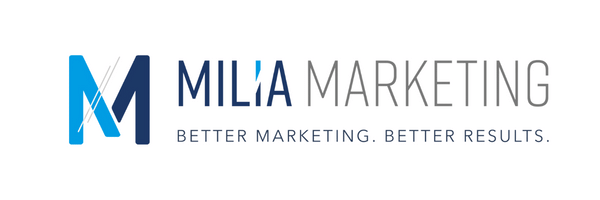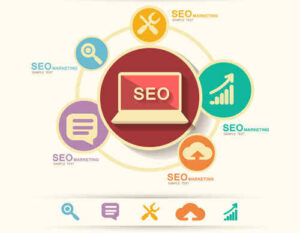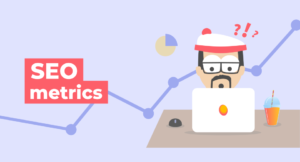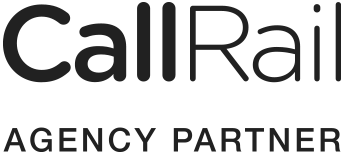You’re at the crossroads again; this time, you must decide whether to employ and develop an in-house marketing team or outsource and hire a marketing agency.
You understand how this decision can shape your business’s growth trajectory, and you’re invested in making the right call for your company’s future. Don’t worry; you’ll find the help you need right here.
After reading this article, you will come to a firm conclusion on whether to build an internal team, choose agency marketing, or employ the hybrid model.
You will also find real-life experiences and case studies to support your decision-making process. So, what’s it going to be; marketing in-house or agency?
How Did We Ensure This Article Is The Perfect Guide You Need?
In creating this article, we spoke with several successful business owners across various industries to learn what worked for them and which options they chose.
We also interviewed marketing agencies to determine if there was any improvement in their marketing results since taking over from an in-house marketing team.
While this article will help you make a more informed decision, you must carefully consider your options and the factors surrounding the variables. You should stick with the option that enables you to get the results you want, retain customers, and keep them coming back.
Pros and Cons of Hiring an In-House Marketing Team
Let’s consider some of the benefits and drawbacks of building an in-house marketing team:
A. Advantages of in-house marketing
- Direct control and supervision: With an in-house team, you have complete control over employees’ decisions and actions. It also allows for easy management of projects, workflows, and results.
- In-depth knowledge of the brand and industry: You chose your in-house team, meaning everyone passed through your screening process and was certified perfect for the role. They understand the industry and the business, and after working on the same project for some time, they know the brand thoroughly. It becomes a part of their identity.
- Brand exclusivity: Since employees are fully employed in your company, you’re sure they only work on your brand as long as they work with you. They only think of one brand, and it’s yours.
- Efficient communication and collaboration: Working with an internal team fosters easy and fast communication. Because everyone works under one roof, you can effortlessly discuss marketing plans, strategies, and more whenever you choose.
B. Disadvantages of in-house marketing
- The recruitment process: If you’ve ever hired staff in your company, you understand it’s expensive and time-consuming, from publishing the job vacancy to scheduling interviews with multiple applicants, vetting, and eventually choosing one without being sure you’ve made the right decision.
- Limited expertise and skill set: One of the challenges of building an in-house team is finding suitable candidates for specific skills like SEO, PPC, content marketing, social media, web development, and more. If you eventually find an expert through an online ad, they may not be in your location.
- High recruitment and training costs: Aside from the apparent time constraint of building a marketing team, you must also consider the recruitment costs and the average salary of every team member. You may also have to train team members to take on specific roles, and that’s more expenses coming from your revenue. Don’t forget about employee taxes.
- Software costs: To maintain an internal marketing team, you must equip team members with the right tools and software to execute their roles and help your business grow. These include SEO tools, web development software, social media marketing tools, and more. Most of these tools require a monthly subscription.
- Office space: Many businesses don’t have the space required to house a team of marketers. To set up a team, you’re looking at around ten (10) employees for the different roles. That is ten offices excluding other departments you most likely already have.
Important note: The cost of working with in-house marketers is relative, depending on your business operations. It can be lower or higher for your business.
On that note, we interviewed Gene Caballero, co-founder and CMO of GreenPal, an innovative company that connects homeowners with reliable lawn care companies nearby. Gene stated clearly:
“… Having an in-house marketing team has proven to be more cost-effective for us in the long run. For example, when we launched a new feature, our in-house team was able to strategize, plan, and execute a marketing campaign within our existing budget …”
Essentially, whether you choose to work with a marketing agency vs in-house, you should set aside a reasonable budget to match the results you want to achieve.
Pros And Cons Of Working With A Digital Marketing Agency
Want to learn the upsides and downsides of working with agencies? Here’s a list to consider:
A. Benefits of working with an agency
- Access to specialized expertise: One of the most important benefits of working with an agency is that they’ve done the hard work of hiring the most skilled professionals for every marketing role you need. When you hire an agency, you can access expert services like copywriting, web development, PPC campaign management, social media, etc.
- Diverse skills and experience: Agencies often hire team members for every role. Hardly will one team member handle multiple functions. This brings about diversity in skills, experience, and ideas.
- Access to new software and tools: While your in-house team may not have access to every tool required for effective marketing, digital marketing agencies have access to every tool and software to improve marketing processes. They understand they must pay for these tools.
- Scalability and flexibility: With an external agency, you can scale up or down depending on your marketing needs. This allows you to have a more flexible digital marketing strategy and budget.
An example is creating seasonal paid advertising; you would either need to train an employee to do this or hire somebody in-house, who probably wouldn’t have any work to do until you need to publish more ads. - More budget-friendly: While there is no guarantee that marketing agencies will be cheaper, you get the option of only paying for services you need from them. An agency may only be required for SEO services, and that’s exclusively what you pay for.
- Allows you to focus on your core competencies: Understandably, digital marketing may not be your company’s strong suit. By outsourcing this task, you can focus on building other areas of your business.
- Industry Insights and Networks: Marketing agencies work with clients across different industries and often have many contacts and industry connections. This exposure allows agencies to bring valuable insights, benchmarks, and marketing trends that can enhance marketing efforts.
B. Disadvantages of digital marketing agencies
- Reliance on external service providers: While this is hardly a disadvantage, you may not be comfortable with having your marketing in the hands of external marketing professionals. However, it helps if you consider the agency as a partner.
- Potential communication challenges: Communication is key to growing your business and can be a barrier when dealing with agencies. Communicating with an agency won’t be as easy as simply calling an employee to ask a question. Meetings need to be scheduled.
- Working with multiple clients: Most agencies tend to work with companies across different industries, meaning you share their working hours with other businesses.
- A reduced level of control: You can have an agency work on your projects, but you cannot control how they do it. You provide what they need and allow the agencies to build impactful marketing strategies tailored to your business needs and marketing goals.
- Problem sharing company data: One significant difference between in-house and outsourced marketing is concerns about the security and privacy of your company data. You may not have to worry about this problem if you choose a professional marketing company with an excellent work ethic.
By carefully comparing these benefits and downsides, you can weigh your options to determine if to work with a marketing agency or an in-house marketing team.
Have You Considered The Hybrid Model? You Should!
The hybrid model of marketing is what you probably already know. It is the combination of both an in-house team and an agency. The benefits of this method are limitless, as it assures you of matchless expertise combined with a level of control to keep project management efficient.
In our interview with Shaunak Amin, Co-founder and CEO of SwagMagic (a growing fashion-gifting platform), he stated,
“Trying to control all aspects of your business by keeping everything internal is outdated.”
In the words of Shaunak:
“Though we have an in-house marketing team, we do outsource specific tasks to a few agencies… Whether someone is internal or external is irrelevant in this digital age. What matters most is that they are experts, and their efforts align with your business goals because that’s how you can ensure a solid return on your investment.”
We also interviewed the CEO / Founder at Hush Anesthetic, Ubaldo Perez. Hush Anesthetic has witnessed a boost in marketing results and the sale of its 2009 tattoo-numbing product, HUSH gel. In his response to the discourse, Ubaldo Perez stated the following:
“We employ an in-house marketing team and outsource specific marketing efforts… Certain skill sets are rare, such as SEO experience, and it’s a better investment for us to outsource some of those efforts than hire unique professionals…
We hired an external agency to help us optimize our web pages (SEO) and build links, but mostly because it’s expensive to hire an ‘in-house’ specialist either way. Luckily, for SEO especially, the ROI is a solid indicator that we made a sound investment.
With an agency, we can vet their track record and client testimonies to see what they can do. We don’t have that same guarantee calling up a new hire’s references or seeing what they’ve done for other companies, so what we really are looking for is peace of mind in our investment.”
Best Practices for Combining In-House Marketing and Digital Marketing Agency Services
If you choose to get rid of the “marketing agency vs in house marketing” debate and work in-house while also outsourcing specific services, here’s a breakdown of what you must establish:
- Clear marketing goals and strategy: Ensure your internal team and agency partner are aligned on your objectives and plans to keep all marketing functions unified across all channels.
- Proper budgeting: Most companies often work with agencies with the idea that they don’t have to assign too much of their marketing budget to the agency. When, in fact, the better the results you want, the more flexible your budget should be.
- Transparent goals and expectations: Whether you decide to work in-house or outsource, you must set realistic and transparent expectations and objectives; if you’re going the hybrid route, it’s even more critical.
- Effective communication channels: You must establish a consistent communication system between the agency and your team. What helps is to schedule monthly meetings to analyze your marketing efforts and progress.
Case Studies: How We Took Over From An In-House Team And Turned Sales Up
As a digital marketing company with years of marketing experience, Milia Marketing has worked with many companies from different industries. We have helped them increase qualified leads, boost sales, and improve digital marketing efforts.
Among the companies we worked with are some that used to be fully in-house and others that use the hybrid model. This is a relationship we enjoy, where a business has an internal marketing person or department, and we “bolt-on” to their existing marketing team and can also support their efforts.
We have compiled case studies from a few of these partnerships to give you a clear, transparent, and unfiltered view of what could be achieved:
1. Firenza Stone – Transforming Online Presence and Driving Conversions
Client: Firenza Stone
Location: Eastlake, Ohio
Industry: Home improvement – cabinets, countertops, and floors
Challenge: Firenza Stone, a leading home improvement brand, sought to enhance its online presence and drive conversions through website migration, redesigning, and SEO optimization. The company works with an in-house marketing lead but needed a partner to help them conquer the online market.
Approach and Strategy: We conducted in-depth industry analysis and research by collaborating with the company’s marketing lead. Based on our findings, we executed the following:
- Website Migration and Redesign
- Search Engine Optimization (SEO)
- Compelling Website Copy
- Performance Testing and Security Measures
- Social media marketing and advertising
Results:
- Clicks improved by 1027.4%
- The average Cost Per Click (CPC) was reduced by 14.4%
- Website conversion rate improved by 651.3% within the initial months
The results were achieved in the first few months of taking over and with a successful collaboration between our team and the company’s in-house marketing lead.
2. Choice Cabinet – Revitalizing Marketing and Website for Success
Client: Choice Cabinet
Industry: Cabinet and Kitchen Design
Years in Business: Over 25 years
Challenges: Choice Cabinet realized that traditional marketing methods proved costly without delivering desired results. The outdated website design also hindered user experience and didn’t resonate with the target audience. They needed proactive strategies to dominate the online market, measurable ROI- and data-driven campaigns, and improved SEO presence.
Approach and Strategy: Milia Marketing collaborated closely with Choice Cabinet to help the company achieve the following:
- Website Redesign and Optimization
- Google Ads and Facebook Ads Strategy
- National SEO Campaign
- Local SEO optimization to drive customers to the local showroom
- Content marketing
Results: Our strategies led to notable improvements and success for Choice Cabinet:
- Leads generated per month: 102
- Traffic Conversion Rate: 18%
- Increase in organic traffic: 54%
3. The DiJulius Group – Elevating Customer Experience Through Digital Marketing
Company: The DiJulius Group (TDG)
Industry: Customer Experience Consulting
Leading Brands they worked with: The Ritz-Carlton, Starbucks, Nestle, Marriott Hotel, PWC, Cheesecake Factory, Harley Davidson, Lexus, Chick-fil-A, and more
Challenges: The DiJulius Group sought a new and comprehensive digital marketing strategy to attract new and qualified clients while maintaining focus on their core services. Challenges and pain points addressed included:
- Comprehensive and measurable reports
- Proactive strategies to outperform competitors
- Scalable services for long-term growth
- Determining key performance indicators (KPIs) for measuring ROI
- Staying updated on trends and bringing innovative perspectives
- Achieving results without constant hand-holding
Approach and Strategy:
- Competitor and SWOT Analysis
- Customer Avatar Creation
- Social Media Marketing and Facebook Advertising
- Website Audit and Technical SEO
- Conversion Rate Optimization and Content Marketing
- Email Marketing Strategy
Results:
- Leads generated: 235+
- Website Traffic Increase: 14% (Month over Month)
- Cost Per Conversion: $23.26
TDG maintains its in-house marketing team but outsources digital marketing services to Milia Marketing. Here’s a video testimonial from the founder and CEO of the company:
Key Takeaways
- Pros and Cons of Hiring an In-House Marketing Team:
- Advantages: Direct control and supervision, in-depth knowledge of the brand and industry, brand exclusivity, efficient communication, and collaboration.
- Disadvantages: Recruitment process challenges, limited expertise and skill set, high costs of recruitment and training, software costs, and office space requirements.
- Pros and Cons of Working with a Digital Marketing Agency:
- Benefits: Access to specialized expertise, diverse skills, and experience, access to new software and tools, scalability and flexibility, more budget-friendly, allows focus on core competencies, industry insights, and networks.
- Disadvantages: Reliance on external service providers, potential communication challenges, working with multiple clients, reduced level of control, problem sharing business data.
- Consideration of the Hybrid Model:
- The hybrid model combines an in-house marketing team with outsourcing specific tasks to an agency.
- Benefits include a level of expertise combined with control for efficient project management.
- Best Practices for Combining In-House Marketing and Agency Services:
- Establish a clear marketing strategy and unified understanding of objectives.
- Proper budgeting aligned with desired results.
- Transparent goals and expectations.
- Effective communication channels between the in-house team and agency.
So, will you go in-house, choose agency marketing, or combine both methods in a hybrid model?

